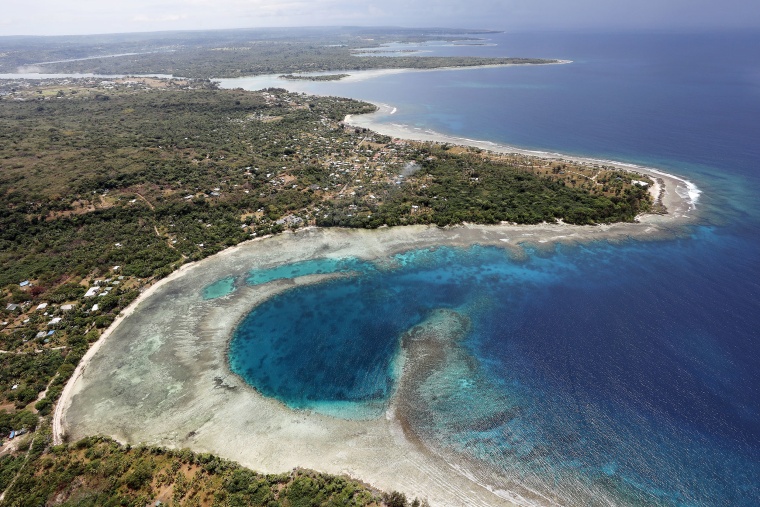Vanuatu calls on the World Court to recognize climate change harms
THE HAGUE, Netherlands — Vanuatu on Monday urged the top United Nations court to recognize the harm caused by climate change in its judgment on the legal obligation of countries to fight it and address the consequences of them contributing to global warming.
Vanuatu, one of the small island states that has spearheaded the effort to get the World Court to give a so-called advisory opinion, was the first of more than 100 states and international organizations to give its views during two weeks of proceedings.
“We find ourselves on the front lines of a crisis we did not create, a crisis that threatens our very existence,” Ralph Regenvanu, Vanuatu’s special envoy for climate change and the environment, told the court.
Regenvanu said there was an urgent need for a response to climate change that was rooted in international law rather than politics.
“We look to the court for recognition that the conduct which has already caused immense harm to my people and so many others is unlawful, that it must cease, and that its consequences must be repaired,” he said.
The hearings began a week after developing nations condemned as woefully inadequate the outcome of the COP29 summit, where richer countries agreed to provide $300 billion in annual climate finance by 2035 to help poorer nations cope with climate change.

While advisory opinions from the International Court of Justice or World Court are not binding, they are legally and politically significant. Experts say the court’s eventual opinion on climate change will probably be cited in climate change-driven lawsuits in courts from Europe to Latin America and beyond.
Solomon Islands youth climate activist Cynthia Houniuhi told the judges that the future for the young people in small island states was uncertain and currently determined by a handful of greenhouse gas-emitting countries that cause climate change.
“As judges of the World Court, you possess the power … to help us course correct and renew hope in humanity’s ability to address the greatest challenge of our time,” she said.
On the first day of hearings, the court also heard from Saudi Arabia, which urged the court to be cautious in its legal opinion, arguing that United Nations treaties on climate change already provide a complete answer to what states must do.
“To impose any obligations or consequences that go beyond or conflict with those contained in the specialized treaty regime on climate change would risk undermining the integrity of this regime” and impair future progress, Prince Jalawi Turki al Saud said on behalf of the Saudi government.
Saudi Arabia is the world’s largest exporter of crude oil, a fossil fuel that drives greenhouse gas increases.
Earlier on Monday, Germany also argued that the obligations of states with regard to climate change were established in the Paris climate agreement.
Aside from small island states and numerous Western and developing countries, the court will also hear from the world’s top two emitters of greenhouse gases — China will speak on Tuesday and the United States is slated to give its views Wednesday. OPEC will not address the court, according to a revised schedule the court issued late on Monday.
The hearings will continue until Dec. 13. The court’s opinion is expected to be delivered in 2025.




